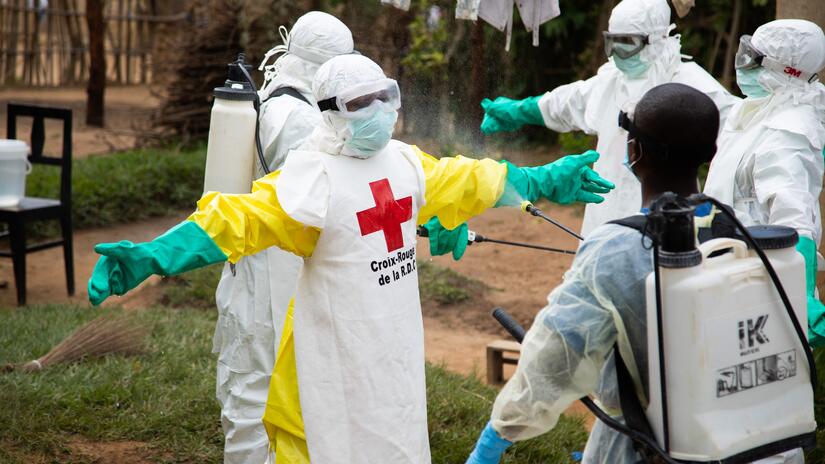Goma/Kinshasa/Nairobi/Geneva, 18 November 2020 – The International Federation of Red Cross and Red Crescent Societies (IFRC) joins the people of the Democratic Republic of the Congo (DRC) in celebrating the end of the country’s 11th Ebola outbreak. This achievement marks the first time in about two and a half years since DRC was Ebola free.
However, the IFRC warns that today’s announcement does not spell the end of the considerable humanitarian challenges that the country is facing, including the ongoing COVID-19 emergency alongside long-standing economic and security issues.
The official end of the Ebola outbreak follows 42 days since the last patient tested negative and comes six months after a cluster of Ebola cases was detected in Equateur province in the country’s north-west. The outbreak, the second to affect Equateur and the third nationwide since 2018 – spread to 13 of the region’s 18 health zones.
Mohammed Omer Mukhier, IFRC’s Regional Director for Africa said responders deserve a tremendous amount of recognition and thanks:
“The courage and dedication of frontline responders – including Red Cross volunteers – is a major factor in the successful response to this outbreak. Their work is even more remarkable given that it came at a time of tremendous additional uncertainty that was brought on by the COVID-19 pandemic. We thank them, and we thank our donors and partners who joined us in ‘staying the course’.”
When the outbreak was first detected on June 1, more than 1,000 trained Red Cross volunteers were deployed immediately to help contain the spread of the virus. They screened over 279,177 people scattered over vast, densely forested areas. They also conducted more than 232 safe and dignified burials and reached more than 343,859 people with information sharing and accountability activities. Their actions come after three consecutive Red Cross responses since 2018 to the country’s 9th 10th and 11th Ebola outbreaks, bringing the total number of people reached with life-saving information to more than 4,892,531 million, with our teams leading more than 12,708 safe and dignified burials.
This milestone comes as the country continues to face the COVID-19 pandemic. Red Cross teams are building on lessons learned and capacities built during the response to Ebola outbreaks and adapting messaging and activities to the COVID-19 context. They are sharing lifesaving information in public places, on community radio stations, on social media and through messaging applications. Red Cross teams have also put in place ‘rapid response teams’ of local volunteers who collaborate with local health authorities to transfer positive COVID-19 cases to treatment centres safely.
Dr Jacques Katshishi, Secretary General for the DRC Red Cross, said it is not the time to leave vulnerable Congolese communities behind.
“Bringing Ebola to zero is a huge achievement, but now we are faced with our next challenge: keeping it there. Our teams within the DRC Red Cross are facing COVID-19 within a complex humanitarian and security environment, making the ongoing support of donors’ and partners’ vital to ensuring that the positive gains communities have made are not reversed. This is not a moment to be complacent: the world cannot afford a resurgence of Ebola in DR Congo. The time to prepare is now,” he said.
Press release
DRC: Media statement on the end of the 13th Ebola outbreak
DRC: Media statement on the end of the 13th Ebola outbreak
| Press release

